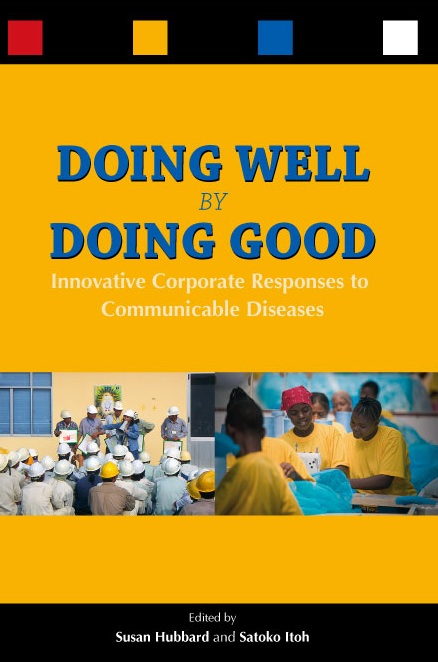Corporations around the world are launching philanthropic activities, workplace programs, and community outreach efforts to deal with the spread of AIDS, malaria, and tuberculosis in their communities. This book presents case studies of particularly innovative approaches by 12 corporations from a broad range of sectors.
The studies provide a basis for the book’s analysis of the motivations behind corporate engagement in the fight against communicable diseases, the ways in which companies have decided to become involved, and the ways their programs have evolved over time. Particular attention is paid to the role of leadership in ensuring successful programs, as well as the impact that engagement in the fight has had on the corporations’ bottom lines.
This book was produced in conjunction with the work of the Friends of the Global Fund, Japan (FGFJ) program. Additional contributors were Tomone Kozen and Tomoko Suzuki, both program officers at JCIE.
Contents
Foreword
Tadashi Yamamoto, President, Japan Center for International Exchange
1. Communicable Diseases and the Corporate Sector
2. Anglo American—Mining for Health
3. The Coca-Cola Company—Leveraging Networks to Fight AIDS
4. DaimlerChrysler South Africa—A Model for Public–Private Partnership
5. Sumitomo Chemical—Saving Lives with Better Nets
6. Toyota South Africa Motors—Mainstreaming HIV/AIDS Programming
7. Bayer China—Empowering the Media to Save Lives
8. Central Azucarera Don Pedro—Local Partnership for Better Health
9. Standard Chartered Bank—Championing the Fight against AIDS in the Workplace and Community
10. Taisei Construction Corporation—Bridge to Health
11. Levi Strauss and Company—Taking Chances and Taking the Lead
12. M•A•C Cosmetics—Dedication to a Powerful Brand Image
13. MTV—Unleashing the Power of Mass Media to Fight AIDS
By Susan Hubbard and Satoko Itoh, eds.

